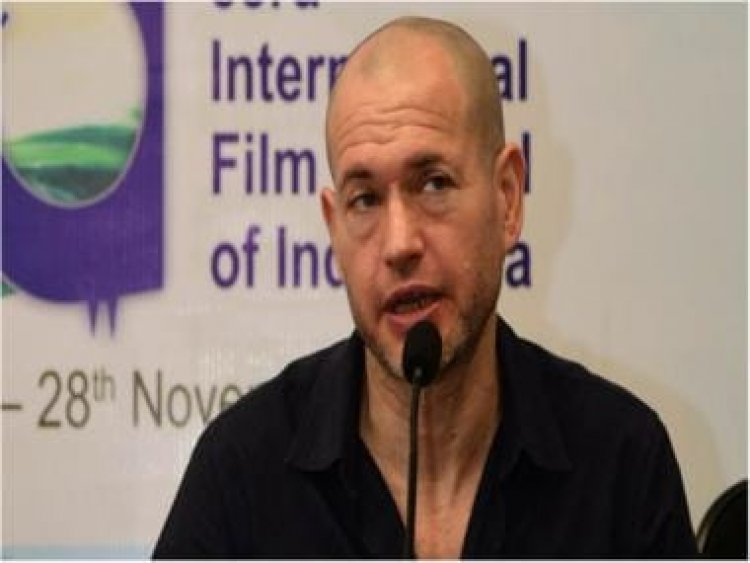Nadav Lapid has the right to his opinion, but he should know what oppression means
Nadav Lapid has the right to his opinion, but he should know what oppression means

We all supported Vivek Agnihotri’s The Kashmir Files, not as great cinema but for its historic assiduousness. The very fact that Agnihotri’s film could tap into one of the most heinous terror genocide and make a film which connected with all of India and the world at large, is no mean achievement.
Sometimes cinema goes beyond the ambit of aesthetics. The message becomes much stronger than the cinematics. It happened with The Kashmir Files.
Why should Israeli filmmaker Nadav Lapid, who earlier served on the jury of the International Critics’ Week section of the 2016 Cannes Film Festival, be empathetic to the film for its merits beyond cinema?
Nadav spoke at the closing ceremony of the International Film Festival of India. His stunning words: “All of us were disturbed and shocked by the 15th film, The Kashmir Files. That felt like a propaganda, vulgar movie, inappropriate for an artistic competitive section of such a prestigious film festival. I feel totally comfortable to openly share these feelings here with you on this stage. In the spirit of this festival, can surely also accept a critical discussion, which is essential for art and life,”
Lapid has said what he had to say and gone back to his home in Israel leaving behind a trail of bristling egos in India. We may disagree with him. But we cannot deny the importance of Lapid’s words. His is not a trivial voice. His films have constantly questioned authoritarian governments and the ordinary citizen’s right to have a voice.
This is why when he misses the point about The Kashmir Files it is a reason to worry. Filmmakers who speak against an oppressive order must always be allowed bonus points for their cinematic demerits. Lapid’s own recent film Ahed’s Knee is not a sparkling monument of cinematic excellence. But it had a strong message on a filmmaker’s obligation and responsibility to use the cinematic space to tell stories that bring out socio-political realities.
This is what Vivek Agnihotri did in The Kashmir Files. This is what Nadav Lapid has done in Ahed’s Knee. Lapid’s fourth film about cultural oppression in Israel is so oppressive it leaves you feeling squeezed from both ends. It is an exhausting largely exasperating non-drama. And by non-drama, I don’t mean nothing happens. In fact, many things keep happening. But they don’t add up to anything. It all seems hazy and, if I say so, lazy. And yes, more than a bit crazy.
A self centered vain and arrogant filmmaker who we know throughout this dreary film as Y (Avshalom Pollak) arrives in a small sleepy sandy city in Israel where we presume, nothing much happens. So the arrival of a known arthouse filmmaker(equivalent to India’s Anurag Kashyap) in this town is news. A bright cultural attaché Yahalom (Nur Fibak) is assigned to Y. She seems a big fan of Y and his work. So dazzled by his artistry that she can’t tell the difference between the man and his work. Y seems vain and full of himself. He narrates war-time stories to Yahalom. She listens in rapt attention. We don’t. These flashbacks/fantasies are neither reliable nor interesting. They are injected with a deep sense of hurt, a hurt that is so corrosive and embedded in the socio-cultural history of the province that everything begins to seem like a documentary shot with a handheld camera.
There is a lack of consistency in the storytelling which in some critics’ circles is considered a sign of mature filmmaking. In Ahed’s Knee the filmmaker’s ‘wisdom truth’ is wedged between the devil and the deep blue sea: he wants us to believe in his cry against oppression and yet he chooses to stifle the voice of protest by imposing an oppressive mood over the theme of oppression.
The film feels the same weight of a vaguely oppressive filmmaking technique whereby we are being bullied to believe what the director wants us to. In that sense, he is no different from Y who invents the reality as per his convenience. Towards the end, he threatens to expose Yahalom’s statement on the subversive politics of Israel so that he can feel like a liberating hero. And here lies the crux of the problem. The hero filmmaker sets his moral compass according to his own will regardless of how his behaviour affects others. Ahed’s Knee is as oppressive as the culture it pertains to deride.
A sensitive issue of justice for Kashmiri Pandits was sacrificed at the altar of propaganda. This is a must listen segment at the #IFFIGoa2022 : pic.twitter.com/zd1WgKoUNa
— Priyanka Chaturvedi
What's Your Reaction?



























































